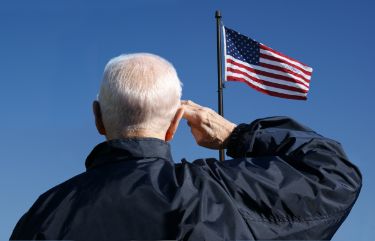Marine Corps veterans have been trying for decades to get relief for health issues from water contamination at Camp Lejeune. This happened from 1953 to 1987 at Marine Corps Base Camp Lejeune in North Carolina.
Investigations identified more than 70 chemicals in some of the wells at the base during this time. These harmful chemicals had concentrations from 240 to 3,500 times levels permitted by safety standards.
 As a result, people were drinking, bathing, washing their clothes and cooking in water potentially contaminated. Chemicals in the water included benzene, which is highly poisonous and can cause rapid death.
As a result, people were drinking, bathing, washing their clothes and cooking in water potentially contaminated. Chemicals in the water included benzene, which is highly poisonous and can cause rapid death.
Congress mandated a United State Military Corps online registry. More than 135,000 former base residents are on the list for possible exposure. At least 900,000 veterans, family members and civilian employees may have been exposed.
Conditions associated with the contamination include:
- Various cancers
- Leukemia
- Miscarriage
- Female infertility
- Hepatic steatosis
- Myelodysplastic syndromes
- Neurobehavioral effects
- Non-Hodgkin’s lymphoma
- Renal toxicity
- Scleroderma
- Parkinson’s disease
- Multiple myeloma
- Mesothelioma, among others.
What Happened to the Water at Camp Lejeune?
Two of the eight water treatment plants at the base had contaminated water. Contamination likely came from an off-base dry-cleaning company, cleaning military equipment and underground fuel storage tanks.
Water sampling in 1980 discovered the contamination at the base. However, action was not immediately taken. Exposed people were denied compensation or treatment for their injuries, while officials debated the potential of harm from the water. The first public statement on the contamination at Camp Lejeune was made in 1997.
In 2005, veterans began filing more than 850 lawsuits against the government for harm.
Four years later, the federal government began to investigate allegations as well as failures to act on the issue.
The Janey Ensminger Act passed in August 2012. The law provides Veterans Affairs (VA) benefits for specific illnesses linked to contamination. But the VA has often denied claims and made the process difficult.
In addition, the Centers for Disease Control and Prevention found in 2014 that the contaminated water increases the risk of multiple diseases, including liver cancer, kidney cancer and ALS.
Still, in 2016, the court dismissed all 2005 lawsuits, saying federal and North Carolina law barred the claims.
What has Changed for Camp Lejeune Residents Exposed to Contamination?
On August 10, 2022, the Honoring Our Promise to Address Comprehensive Toxics Act of 2022 was signed into law by President Biden. The act allows Marine Corps veterans to seek compensation for health conditions related to contaminated water exposure at Camp Lejeune. It overrides the laws that barred previous lawsuits, allowing veterans two years from when the law was signed to sue the government for damages.
Section 804 of that law, the Camp Lejeune Justice Act, provides damages for past injuries from Camp LeJeune toxic exposure. Also, it is the first law that provides compensation to the civilian family members of veterans stationed at the base as well as those who came onto the base for work.
The new law allows veterans with certain service experience to seek compensation, even without proving an in-service injury or illness. Disability compensation usually requires evidence of a current disability, an in-service injury or illness, and a link between the illness and disability.
Instead, the new law presumes exposure to contaminated water for active duty, reserve or National Guard in service at the base for a total of at least 30 days between Aug. 1, 1953, and Dec. 31, 1987, expanding the rights and benefits available to people exposed to toxic water while working or serving at Camp Lejeune.
Exposed at Camp LeJeune? You Have Options
The Camp Lejeune Justice Act of 2022 also outlines the Cost of War Toxic Exposures Fund. This fund is administered by the VA. Its purpose is to pay for health care and benefits associated with exposure to environmental hazards during military service.
Exposed to contaminated water at Lake Lejeune from 1953 to 1987? You can get a free, no-obligation consultation. We will help you understand the actions you can take to protect your rights and to file a strong claim for the compensation you deserve. Filing a claim with the federal court is separate from filing a claim with the U.S. Department of Veterans Affairs. So, it is important to work with a qualified, knowledgeable attorney.
